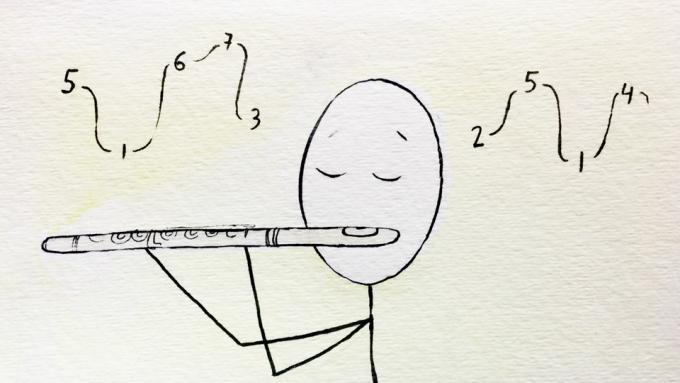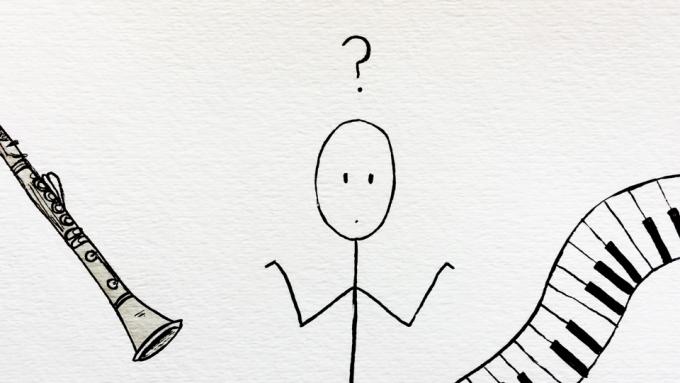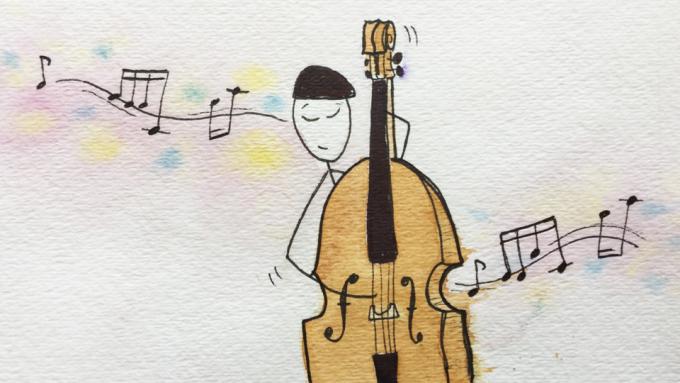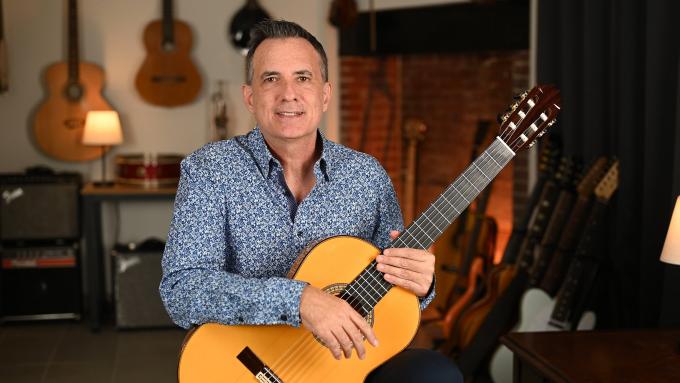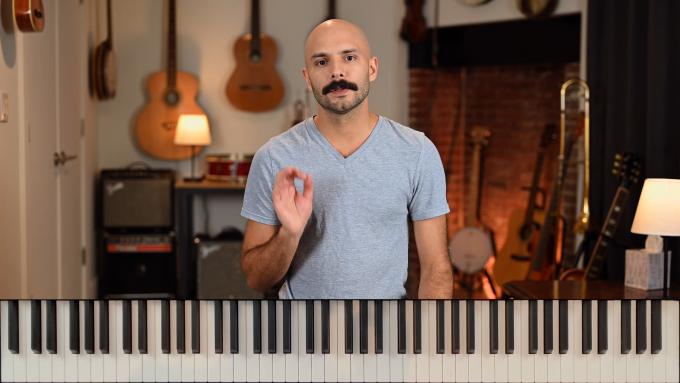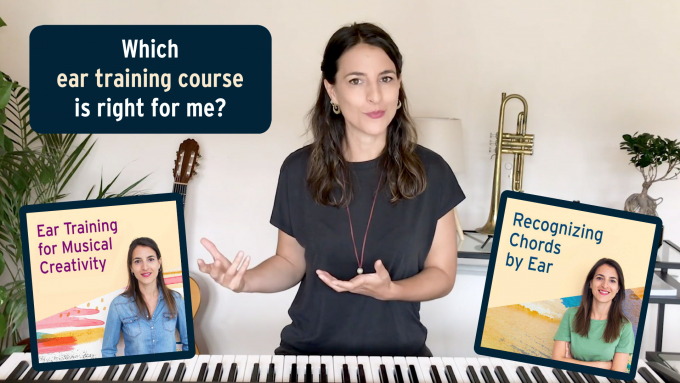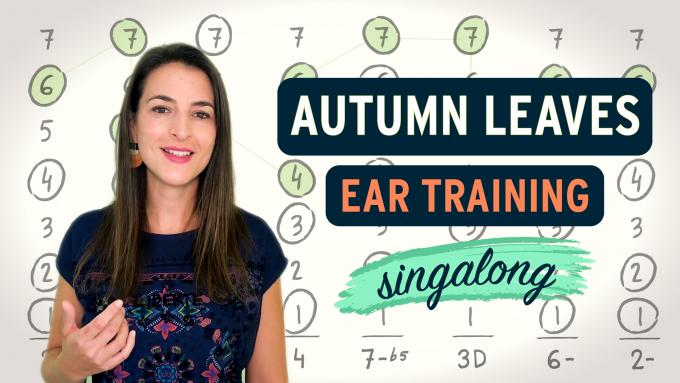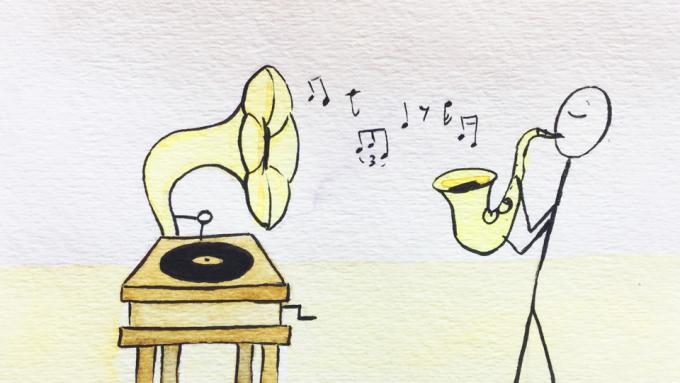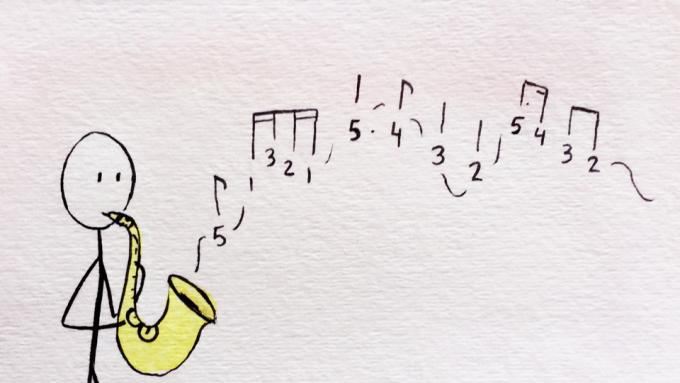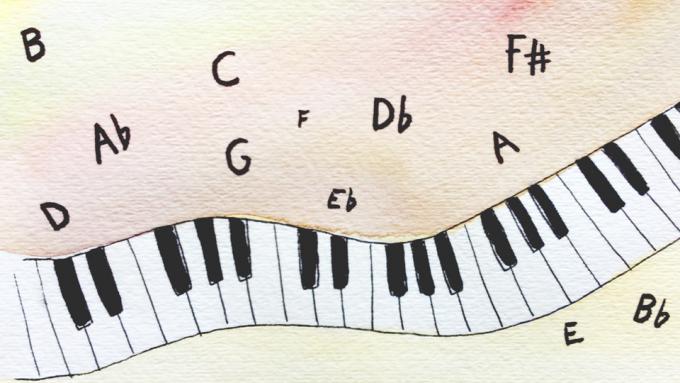I just purchased your book from Amazon and would like to clarify a point. When the exercise says to visualize all five notes at once on my flute, does this mean the sound or the letter name of the note?
"I have more experience on the piano but now my main interest is the clarinet. Do you think I should practice your method on the clarinet, on the piano or both?"
I am a bass player with about 15 years of rock band experience whose first love has always been smooth jazz. I want to know if your book would help this bass player realize his goals of being able to improvise at will and gather a much better musical understanding.
In this step-by-step video course, you will master the seven harmonic environments of the major scale which are the building blocks of all modern music. And you'll learn to connect your ear with your instrument, expressing your own musical ideas anywhere on the fretboard.
In this free sample lesson from Seven Worlds for Piano, we will master moving around our instrument by whole steps. Once we have mastered both the half step and the whole step, we can use these intervals to build the notes of any key on our instrument.
"I love the IFR approach to ear training! I would like to purchase one of your ear training video courses, but how can I decide which course might be more appropriate for me: Ear Training for Musical Creativity 1 or Recognizing Chords by Ear? And can I take them both at once?"
This is a practice video for Improvise for Real students who are studying the song Autumn Leaves from IFR Standards Workout 1. In this video we will practice together the ear training exercise Melody Paths over the A section of Autumn Leaves.
I want to purchase IFR Jam Tracks Level 1 but I don't know if my current level of knowledge is enough to be able to use them. Right now I'm practicing IFR Exercise 2 and I'm in the Seven Worlds exercises. Do I need to go farther or is this enough to start improvising with the jam tracks?
Learning to think relative to the key of the music is the most important thing you can do to accelerate your music learning. This article explains four immediate benefits to your music practice from adopting the tonal point of view.
Is it better to start each improvisation exercise from a random note on our instrument? Or is it better to stay in one key until we've mastered it?
